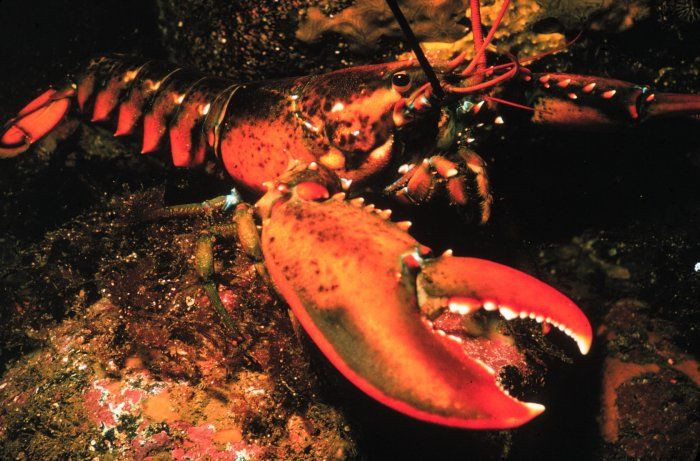Overpopulation, Climate Change, Nighttime Is Turning Lobsters Into Cannibals

Lobsters are not known for being the friendliest creatures in the sea. In fact, in confinement, they have been known to attack others of their own kind - why their claws are clasped together in fish tanks. However, researchers in Maine have discovered lobster cannibalism. It is the first time that the phenomenon has been spotted in the wild.
While warming waters and disease has decimated lobster populations in the Long Island Sound and even southern New England, it has never been a better time to be a lobster fisherman in Maine. The 2011 haul was the largest ever, with 105 million pounds, compared to 23 million thirty years prior, in 1931. This year, the haul is poised to be even bigger.
The phenomenon is in large part due to two things. Climate change is warming the waters off the coast of Maine, making the habitat more hospitable to lobsters. In addition, overfishing has destroyed the populations of cod, halibut, and other fish that feed on lobsters. Now, lobsters are king.
In response to this phenomenon, something strange and disturbing is happening. Noah Oppenheim, a graduate student at the University of Maine and his colleagues, intended to study the lobsters. Oppenheim tethered a juvenile lobster to a string and documented the footage with video. The team expected to see the lobster go untouched, maybe see some familiar or new predators. Oppenheim expected that the footage would be so boring that he fell asleep the first night on the boat.
However, when he later watched the footage, he saw something surprising. While during the daytime, it was larger fish that made meals of the juvenile lobsters, during the night, it was a different story. A larger lobster would approach the baby - and eat it. The following night, when the experiment was recreated, the same thing happened. On every night that the researchers conducted these experiments, the same cannibalism would occur. On one occasion, a big lobster got chased off by an even larger lobster wanting the treat for himself.
The study was the first time that lobsters were seen cannibalizing in the wild.
Of course, the study leaves its own questions. The real test will come when the juvenile lobsters are untethered and are possibly able to get away.
"There are these cases where encounters with each other are becoming so frequent, they result in more than just a bit of competition but in a predator-prey interaction," Richard Wahle, a professor at the University of Maine and Oppenheimer's advisor, said to Reuters.
Published by Medicaldaily.com



























